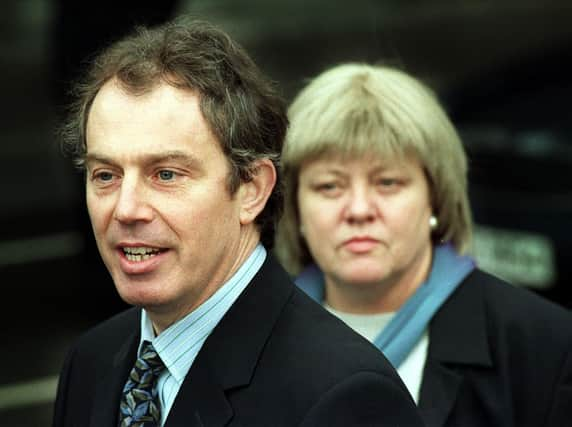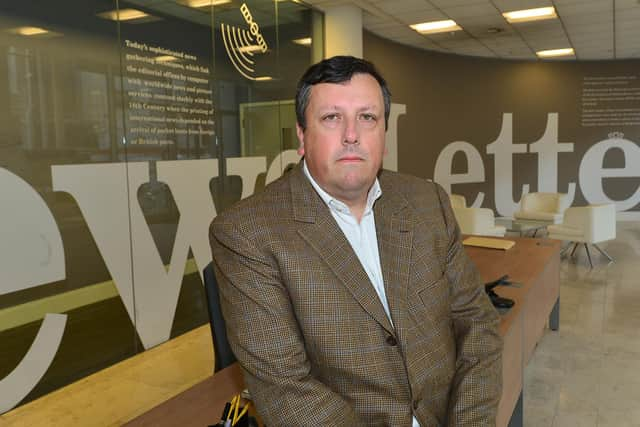Belfast Agreement @25: I spent two years working on the 1998 deal and it was the best we could get, says David Campbell


It has at its core the requirement for all to respect the fundamental right of a community to self-determination. This was manifested in the principle of consent subsequently enshrined in the Northern Ireland Act (1998) and in the Republic of Ireland holding a referendum to remove their irredentist claim to Northern Ireland (Articles II and III); a claim which gave rise to the immoral and false justification of IRA terrorism.
The agreement also corrected the increasing dysfunctionality of Northern Ireland – unaccountable direct rule, an Anglo-Irish relationship imposed on Northern Ireland, an incestuous and unhealthy civil service and system of administration by unelected quangos, and unrepresentative policing. All of this gave rise to the marginalisation of unionism and fed the myth of the failed state mantra adopted by Sinn Fein.
Advertisement
Hide AdAdvertisement
Hide AdLooking back at nearly two years of my life spent in the confines of Castle Buildings it is clear now that no agreement was ever going to be any better. Its main elements had been identified at Sunningdale and by progressive thinkers within unionism like John McMichael (Common Sense Proposals), Frank Millar and Peter Robinson (Task Force Report) ie; power sharing based on electoral mandates, sensible co-operation between Northern Ireland and the Republic, and a coming together of all the component nations that make up the British Isles.


But what made this agreement different were two absolute pre-conditions: the consent principle respected in law and in practice, and the ending of violence from all quarters including the dismantling of paramilitary organisations and the decommissioning of all illegal arms. These achievements meant that difficult and distasteful issues like prisoner releases and policing reforms could be countenanced as part of an overall agreement.
The detail of the talks and the agreement have been well documented throughout this series of essays. Our main problems arose with its implementation following the assembly elections in June, 1998. Although the UUP remained the largest party we had a difficult and divisive election with several anti-agreement or sceptical MLAs being elected.
The idea that the plethora of small parties elected to the negotiations would also be returned to the assembly did not materialise other than the women’s coalition (NIWC) and the PUP. It is worth reflecting that if the electoral system that had elected the NI Forum had been repeated for assembly elections the assembly would be much more diverse. This system (which is used in Scottish Parliamentary elections) elected five members per constituency on a PR basis but also provided the top ten parties with two seats each drawn from party lists. In addition, the party leader had the power to replace members if they broke party discipline – this would have been extremely helpful to the UUP.
Advertisement
Hide AdAdvertisement
Hide AdUnfortunately, despite her personal courage, we had a hostile secretary of state in Mo Mowlam. If she had linked prisoner releases to progress with decommissioning we would have been in an altogether better place. Equally, on publication of the controversial Patten report on Policing, she immediately accepted it in principle on behalf of the government without consulting the main parties. Both these issues were to hamper the formation of an Executive for nearly two years and cost us significant public support.
In the event it was to require David Trimble to resign twice as first minister before he forced PIRA first of all to agree decommissioning schemes with the IICD (August, 2001) and then to actually start decommissioning their weapons (October, 2001). I remember having a quiet celebration with him on 23 October, 2001 over a glass of Bushmills and we toasted ‘perseverance’!
I firmly believe David Trimble delivered peace to Northern Ireland on terms that provide our best chance of remaining an integral part of the United Kingdom in perpetuity. He ended the territorial claim over us from our neighbour. He delivered the Principle of Consent and a veto on change that must never be surrendered. He delivered the surrender of the Provisional IRA. These achievements cannot be allowed to be diminished because of the NI Protocol.
The past week’s events marking the 25 years since the Belfast Agreement was finalised was regrettably met with derision throughout the unionist and loyalist community. Firstly, the organisers managed to offend many of those who actually contributed to the formulation of the agreement by excluding them from participation in the events; and secondly, the main VIP dignitaries extolled the virtues of the agreement but completely ignored the protocol’s breach of the key fundamental principle that underpinned all aspects of the agreement – the principle of consent.
Advertisement
Hide AdAdvertisement
Hide AdDavid Trimble was mentioned, and rightly lauded, many times last week, so why were his last speeches that exposed the real betrayal of the agreement by the UK and the EU, made in the face of increasing ill health, ignored and brushed over? Does anyone think that would have happened if the Protocol had created a hard border on this island? Those same VIPs would have condemned it from the stage of the Whitla Hall. Consent appears to only matter to others if it means nationalist consent. Shame on them!
• David Campbell was UUP Talks negotiator, Chief of Staff to David Trimble, 1998-2005, UUP Chairman, 2005-2012, LCC Chairman since 2015